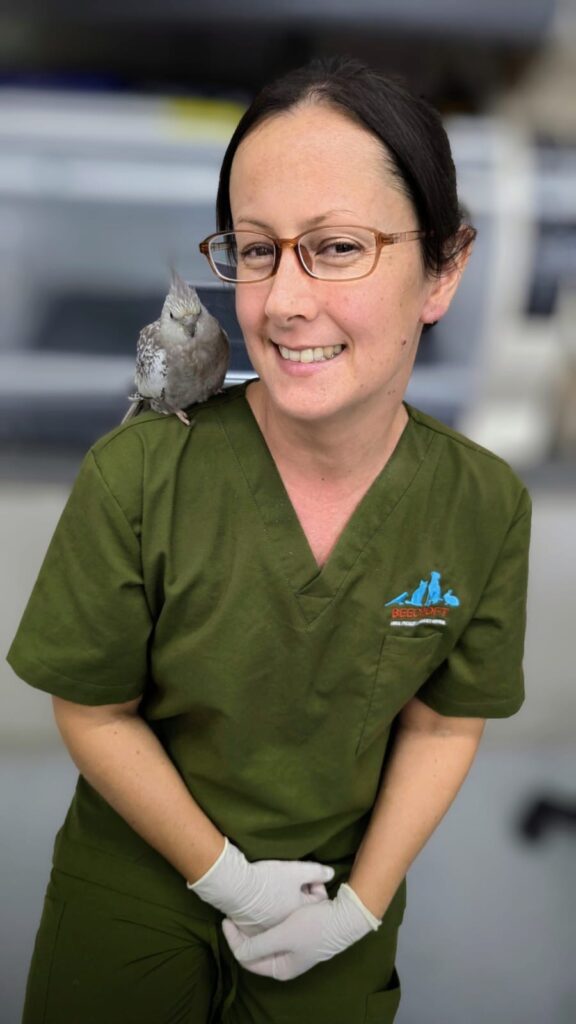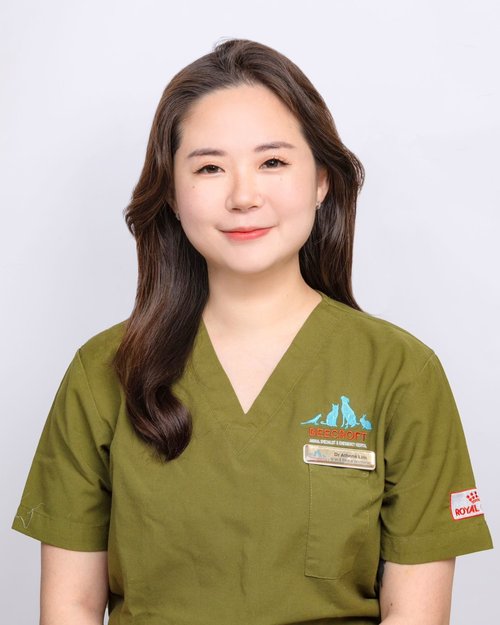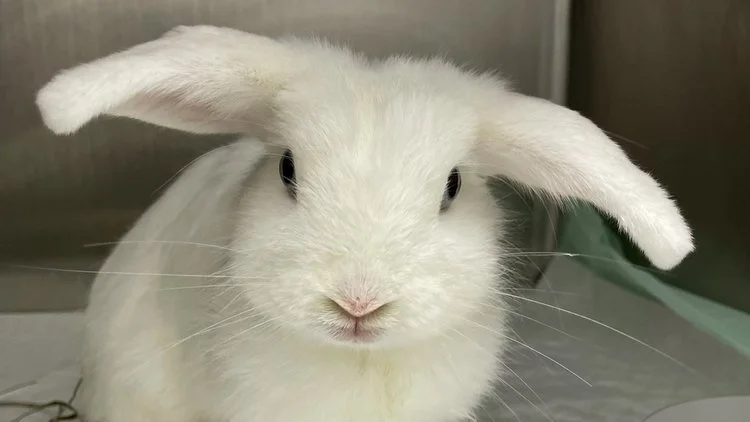

Dr Rina Maguire is a highly skilled specialist veterinarian for exotic companion animals for over 18 years. Her knowledge of exotic veterinary medicine is exceptional and widely respected. She also exhibits an entrepreneurial streak as the co-founder of Beecroft Animal Specialist and Emergency Hospital, a referral specialist and emergency hospital based in Singapore.
Before Beecroft Animal Specialist and Emergency Hospital, Dr Maguire practised in referral and specialist avian and exotic animal-only hospitals in Manhattan and Long Island, New York. She was also the resident zoo and wildlife veterinarian at the Singapore Zoo and Jurong Bird Park for two-and-a-half years.


My initial education and interest was in neuroscience, and this led to an interest in animal behaviour and intelligence, particularly of birds, and an appreciation for the communication and bonds between humans and birds. This then lead me to appreciate the need to provide high-quality care for these intelligent and emotional animals that share our lives, which then lead me to work as a veterinary nurse for an Avian Veterinary Specialist in Australia, and then back to university to complete my veterinary training, with the intention of becoming an avian veterinarian, and one day a Specialist as well.






We provide 24-hour hospitalisation and ICU support for critical exotic cases, with walk-in emergencies accepted both during the day and through our overnight emergency service. Our facility offers advanced diagnostic capabilities, including CT scans, cardiology studies, and detailed ultrasound imaging, which are often unavailable in smaller general practices.
Many standard clinics lack the specialised equipment and expertise to safely handle bloodwork and advanced procedures for exotic species. At Beecroft, we routinely perform complex surgeries such as orthopaedic procedures, soft tissue surgery, reproductive procedures (including spaying of birds, reptiles, and small mammals), as well as emergency surgeries for conditions like bladder stones or intestinal obstructions.
Preventive healthcare is central to our approach. We devote time during consultations to address the unique dietary, environmental, and husbandry needs of exotic pets. We strongly recommend post-purchase examinations for new exotic pet owners and encourage routine annual health checks to detect early signs of illness.
Our team also provides support for the export of exotic pets overseas, including required health certifications, diagnostic testing, and quarantine checks. We work closely with a trusted network of approved transport partners to ensure the safest and most compliant travel arrangements for your pet. However, it remains the responsibility of the transporter or owner to manage travel schedules and ensure compliance with relevant import/export regulations.





A wellness exam is essential to ensure your exotic pet’s good health. This is especially important if you have acquired a species with which you are not familiar.
The information you may have read about exotic animal care may not be entirely accurate and could lead to detrimental mistakes in the animal’s care. Many exotic companion animals, such as hamsters, rabbits, chinchillas, gerbils, guinea pigs, and birds, are experts at hiding their illnesses because they must be constantly vigilant of predators to survive in the wild.
With our expertise and diagnostic capabilities, regular annual wellness checks can uncover underlying disease processes early. Our team is experienced in picking up subtle signs of illness and confirming them with diagnostic tests (where necessary) before a serious problem develops.
The screening begins with questions about your pet’s husbandry, socialisation, and nutrition before proceeding to a physical examination. From there, we may recommend diagnostic testing if there are concerns for abnormalities.
It is essential to have a new pet examined before allowing them to socialise with other pets at home and to adhere to a quarantine period.
Wellness screening tests may include:
The requirements for exporting animals vary significantly depending on the destination country.
Commonly performed tests:
Routine blood work is often done at your pet’s annual wellness exam. Establishing a normal baseline helps us evaluate any changes in their condition more accurately when they become ill.
Older pets can develop age-related conditions and are also more vulnerable to disease and degenerative changes such as osteoarthritis. We understand the unique needs of aging exotic pets and highly recommend seeing them at least biannually for wellness exams and diagnostics. Catching illness as soon as possible is crucial for the health of your senior pet.